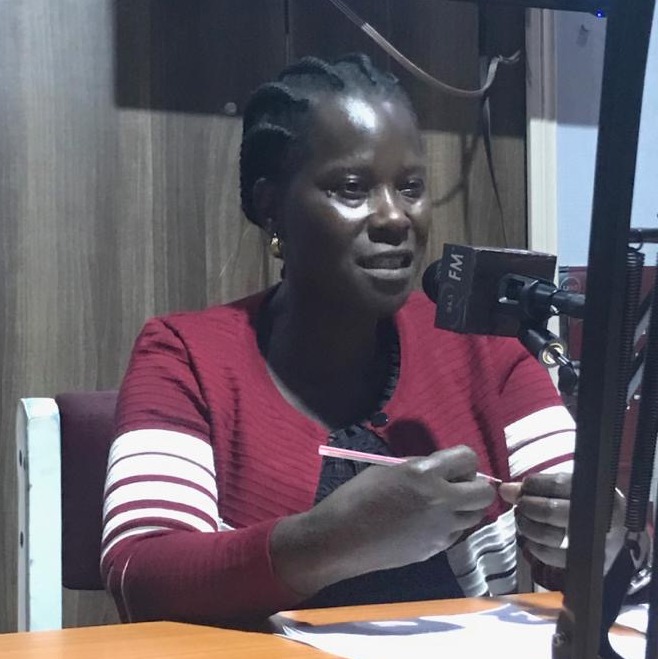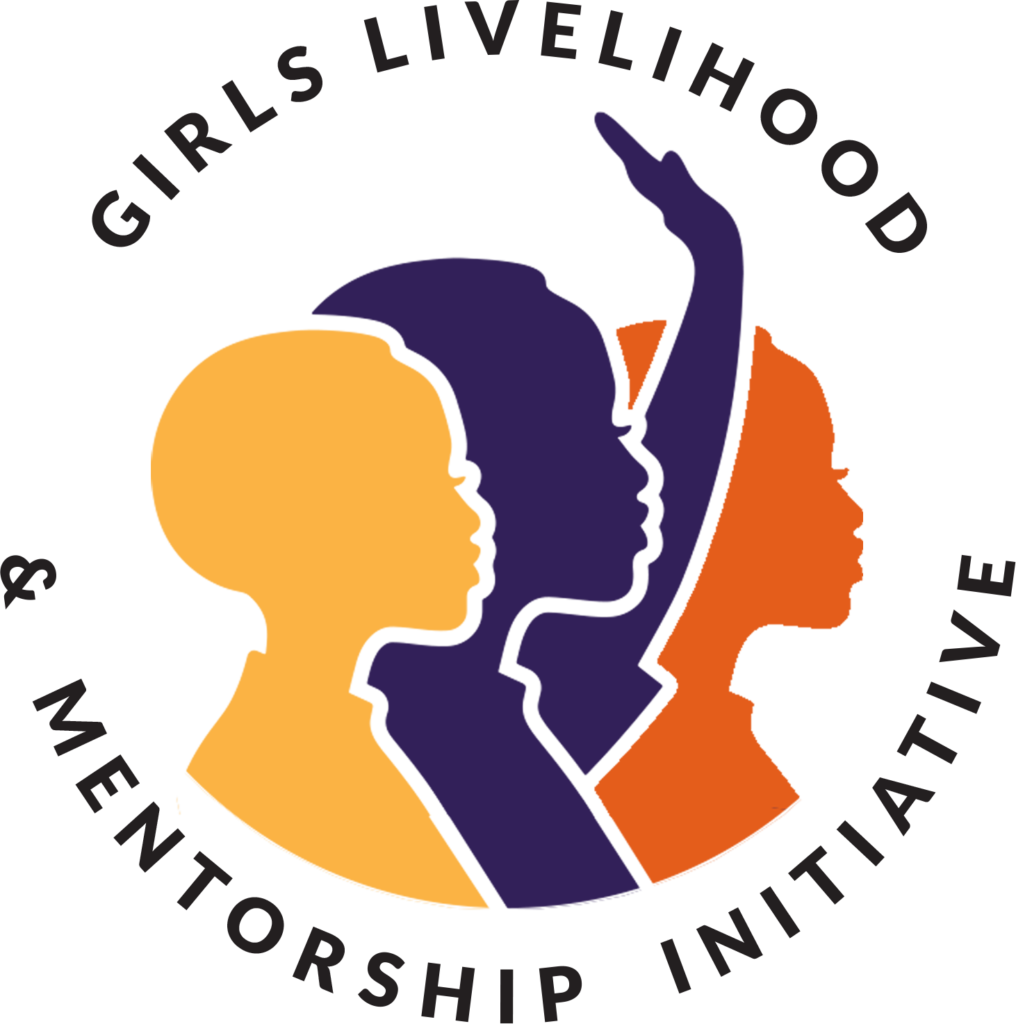Session 5: Self-Motivation and a Growth Mindset
Wednesday, September 2, 2020
 During the COVID-19 pandemic, schools throughout Uganda have been closed indefinitely. Students are stuck at home, many with no resources at all to stay connected or continue learning. Community Radio is one of the most effective ways of reaching people in rural areas of developing countries. African Girls Can recommended a six-part program to the local radio station, Q-FM, 94.3 in Lira, which was immediately interested in content to provide hope and encouragement to youth, especially girls.
During the COVID-19 pandemic, schools throughout Uganda have been closed indefinitely. Students are stuck at home, many with no resources at all to stay connected or continue learning. Community Radio is one of the most effective ways of reaching people in rural areas of developing countries. African Girls Can recommended a six-part program to the local radio station, Q-FM, 94.3 in Lira, which was immediately interested in content to provide hope and encouragement to youth, especially girls.
This is the script for the fifth program. It was broadcast (and streamed on the internet) in the local language, Luo, and lasted one hour. The last 10 minutes were reserved for callers questions and comments.
Moderator (M)
African Girls Can (AGC)

M: Welcome everyone! Welcome back to Madame Jennifer Nyakober, a math teacher and head of the Career and Counseling Department at St. Katherine School. Jennifer represents the organization African Girls Can. She has brought with her a student who is supported by African Girls Can and who has come all the way from Otuke. Auma Nambi Joyce is an Ordinary Level student in Form 2.
Madame Jennifer has been on this radio station four times since July 8th and we have replayed all of those programs. We hope you heard our programs on Life Challenges and Resiliency, Advocating for Yourself, Building your Self-Esteem, and Positive Role Models. This time, we are going to talk about Self-Motivation and why it is important to have a Growth Mindset.
First, please remind us what African Girls Can does.
AGC: African Girls Can was founded in 2016 to promote girls’ education and empowerment. We provide partial scholarships for girls in the Lira area to attend secondary school. These are girls who without this support would have no other opportunity to continue their education. We form a community with these girls and provide activities to help them build their confidence and succeed at school.
M: Thank you. Let’s get started with tonight’s program. Let’s talk about motivation – where it comes from and how you can stay motivated.
AGC: Now, more than ever, while you are home during the COVID-19 pandemic, you need to be self-motivated. You should start by considering where your motivation comes from.
Motivation is the reason or reasons one has for acting or behaving in a particular way. It is the general desire or willingness of someone to do something.
Values are a person’s principles or standards or behavior. In other words, one’s judgement of what is important in life.
The concepts of motivation and values are closely related. Our values motivate our behavior and decisions.
There are two different types of motivation. One is internal and the other is external.

M: Can you explain the difference between internal and external motivation?
Internal motivation is the driving force that comes from inside us. It causes us to do a good job because we feel good about ourselves when we accomplish something. When we are internally motivated, we operate according to our own values and what makes us happy.
External motivation is motivation that comes from outside of our own brain. When you want to do a job because it will impress someone else, or because you’ll receive a prize for it, or because you’ll be punished if you don’t do it. This is motivation that comes from outside your internal value system, and instead is based on getting a reward or avoiding a consequence.
Please close your eyes and think about what motivates you to succeed. Now, take a piece of paper and write down these things.
Here are some examples:
- Being kind to others.
- Your religious values.
- Getting good grades at school.
- A desire to earn a high wage.
When we identify what is important to us and what drives our choices and decision-making, we are then able to create an action plan for how to manage our paths to success.

M: What is a growth mindset?
The other important concept related to self-motivation is having a growth mindset. This is the attitude that abilities can be practiced and improved, rather than being unchangeable. And that you are in control of your own ability – that you can always learn and improve, no matter how old you are or what your past experience has been.
The brain is “plastic,” which means that it can always get smarter. The brain is actually a muscle that needs to be exercised, just like the body. Read as much as you can and you will become a better reader. Your vocabulary will increase. Write as much as you can and you will become a better writer.
Girls, unfortunately, especially have a tendency to think of their abilities as fixed. In other words, that people are born with a particular ability or they aren’t. As a result, girls are more inclined to give up when they encounter problems with a particular task or area of study, believing they don’t have the ability to improve.
People with a growth mindset focus on improvement and see effort as a way to build their abilities. They see failure as a natural part of the learning process. They believe that their most basic abilities can be developed through dedication and hard work. This view creates a love for learning and becoming a life-long learner. Adopting a growth mindset also will help you to build resilience and persistence, which are so important for accomplishments in all aspects of life.

M: Are there some strategies for developing a growth mindset?
AGC: Yes, we have 8 suggestions to share with our audience.
Acknowledge and embrace your imperfections. Hiding from your weaknesses means you’ll never overcome them.
View challenges as opportunities. A challenge creates a chance to improve yourself in some way.
Replace the word “failing” with the word “learning.” When you make a mistake or fall short of a goal, you haven’t failed, you’ve learned.
Stop seeking approval. When you prioritize approval over learning, you sacrifice your own potential for growth. Instead, seek honest and helpful feedback from others.
Learn from other people’s mistakes. It’s not always wise to compare yourself to others, but it is important to realize that humans share the same weaknesses.
Think realistically about time and effort. It takes time to learn. But, always keep the big picture and your goals in mind.
Set a new goal once you have achieved one. You will never be done learning. Just because your exam is over doesn’t mean you should stop being interested in learning more about a subject.
Once you develop a growth mindset, own it. Acknowledge yourself as someone who possesses a growth mentality and be proud to let it guide you throughout your education. Celebrate your growth with others. And acknowledge and celebrate their growth too.
M: Are there some things that parents and teachers can do to encourage a growth mindset in their kids?

AGC: Yes, parents and teachers should do these 3 things to support their kids:
Place effort before talent. Hard work should always be rewarded before skill or talent. Instead of saying, “you are so smart!” praise the child by saying “I noticed how hard you studied and how well you organized your time in preparing for your exam. Good job!”
Reward actions, not traits. Tell your child or student when they’re doing something smart, not just being smart. Also, when you see your child or student struggling with a task, just tell them they haven’t mastered it “yet.”
Emphasize growth and determination over speed. Learning fast isn’t the same as learning well. Learning well requires allowing time for mistakes.
M: Thank you everyone for listening to African Girls Can on the radio, working on your self-motivation and adopting a growth mindset!
Please, everyone, stay strong, stay well, stay hopeful!
 With gratitude to Girls Livelihood and Mentorship Initiative and its Binti Shupavu program for assistance with this content. Binti Shupavu is a four-year life skills course for lower secondary school girls covering topics such as study skills, personal leadership, health and self-confidence with the goal of increasing graduation rates for vulnerable girls.
With gratitude to Girls Livelihood and Mentorship Initiative and its Binti Shupavu program for assistance with this content. Binti Shupavu is a four-year life skills course for lower secondary school girls covering topics such as study skills, personal leadership, health and self-confidence with the goal of increasing graduation rates for vulnerable girls.

